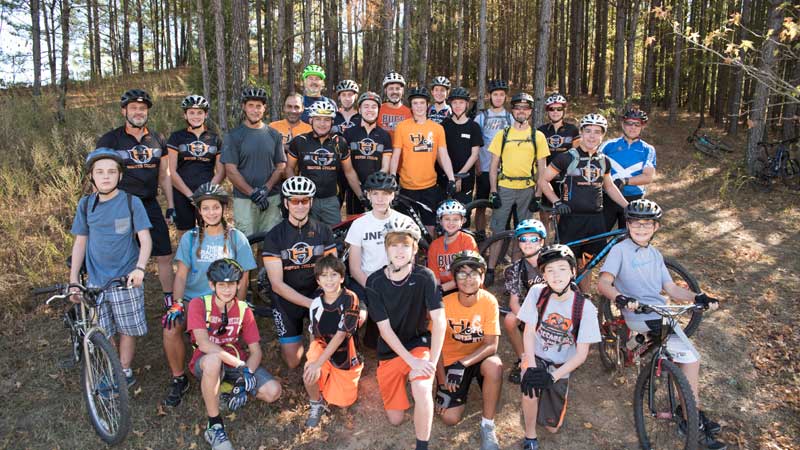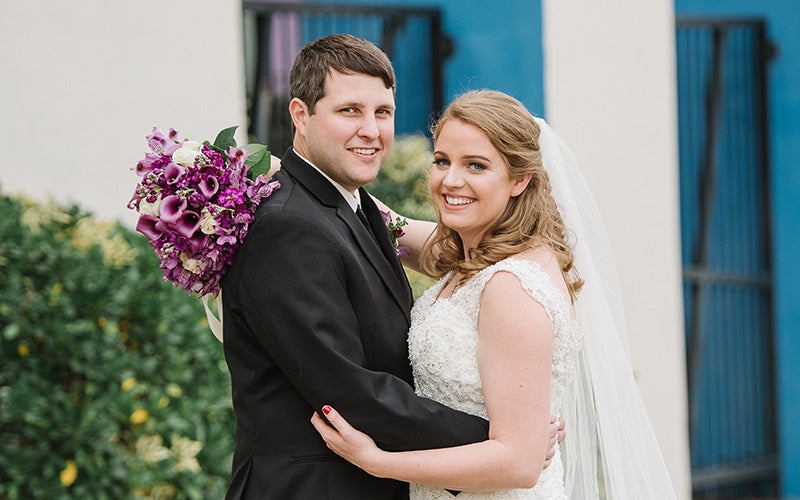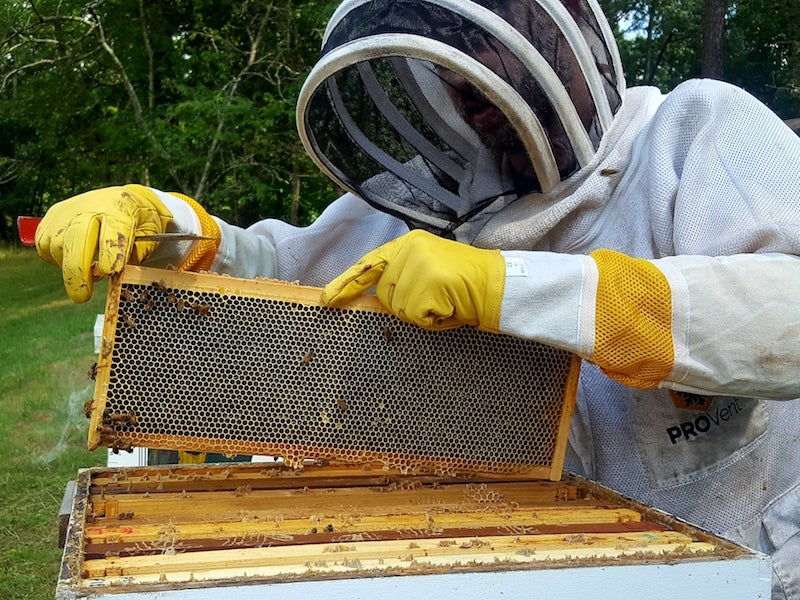Imagine a job that not only lets you bring your dog to work, but it’s actually a requirement. For Hoover Police Department K9 officers, riding around with their four-legged partners is just another day at work.
The department currently has six police dogs, including two Labrador retrievers, a German shepherd, two black Labradors and a Malinois, says Jim Thornton, Hoover PD sergeant in charge of training for the K9 unit.
Thornton joined the department in 1990 and started working with a dual-purpose dog the year after. Hoover’s dual-purpose dogs search for narcotics and hidden suspects in buildings or other areas — along with using tracking and general preventive patrol skills.
Working with dogs was nothing new for Thornton, who had been showing and teaching them since he was just a teen.
The time it takes to train a police dog varies on what they need to learn, any previous training they’ve received and the dog itself. Normally, it takes five to six weeks to get them through the initial training, 10 to 12 more weeks for a patrol dog and 12 to 16 weeks for a dual-purpose dog.
“A lot depends on how trainable the dog is,” Thornton says. Most of the dogs they work with come from Europe, he adds.
Once trained, the dogs become powerful detectors and help the police find suspects, explosives and especially narcotics. One of Thornton’s dogs found 5 kilos of heroin in a car’s spare tire. Another one of the K9s led them to 1,500 pounds of marijuana.
“They help you find things or people you probably wouldn’t have found otherwise,” Thornton says. “With narcotics, for example, the dog’s indication is what gives us probable cause to look further. In a lot of situations, it’s safer to let the dogs do the searching for us.”
Officer William Warner has seen what the dogs can do first hand. Warner joined the Hoover Police Department in 2011 and handles Jax, a 4-year-old German shepherd.
Warner and Jax typically work the midnight shift, and Jax is a dual-purpose dog and trained for apprehension and narcotics detection.
Like Thornton, Warner also grew up around dogs and now has four, including Jax. So, he jumped on the opportunity to apply for the K9 unit when he came to Hoover.
“It’s one of those things I always wanted to do growing up,” Warner explains. “I knew I wanted to be a police officer, and having a police dog was the ultimate thing.”
Thornton says it takes a special person to be a handler. “You have to be able to relate to animals,” he continues. “It’s not an eight-hour-a-day job. You have to be able to care for the dog, too. It requires a pretty big commitment.”
All of the dogs live with their handlers. While they all have doghouses built for them outside of their handlers’ homes, most spend their time indoors with the rest of the family. And over time, they learn when it’s time to relax and work.
“When they go home, they are part of the officer’s family — so it isn’t all work. They know when they’re home, they can relax,” Thornton says. “They learn the difference after a while.”
Warner can definitely see the change when they take off for the day.
“He’s a big baby when he’s at home. He’s more playful,” Warner says of Jax, who came from Holland. “If I walk into the backyard with regular clothes on, he’s fine. But if he sees me with my uniform on or start up the patrol car, he gets really excited.”
That excitement has led to several major busts.
One of Jax’s biggest find was when he indicated on a car, meaning he smelled narcotics. And he was spot on: There ended up being 2 kilos of cocaine in the vehicle. “That was probably his biggest call out,” Warner says.
About 1 1/2 years ago, Jax also made a major apprehension when he tracked down a suspect who had been breaking into cars in Bluff Park.
“He detects ground disturbances where someone has walked or run,” Warner explains. Although Jax is trained to bite on command (the only one in the K9 unit), he has never bitten anyone during an apprehension.
When Jax indicates on something, he gets rewarded from that spot. Some of his favorite rewards are a Kong ball, cut PVC pipes and old fire hoses.
These toys are also used during their training. The six dogs and their handlers try to get together once a month to train and reinforce what they’ve learned on the job.
Beyond their normal training and duties, Jax and the other dogs are also used by other municipalities who don’t have a K9 unit. The bomb dogs are used for events like University of Alabama football games and Talladega races for explosive screenings.
While these K9s may look adorable, passersby shouldn’t treat them like normal dogs.
“Alpha dogs don’t like people getting in their faces or hugging them,” Warner says. He asks people not to touch them if they see the dogs around town.
After years on the job, the dogs reach retirement age just like other officers, although there’s no set age. Thornton once had a dog that worked until it was 11 years old.
“I always say, ‘There’s no human as loyal as a dog,’” Warner says. “When I get out of the truck for a traffic stop at night, Jax watches me the whole time. The loyalty and bond is incredible. He’s a police officer just like me.”
For more information about the K9 unit, visit Hooverpd.com.










